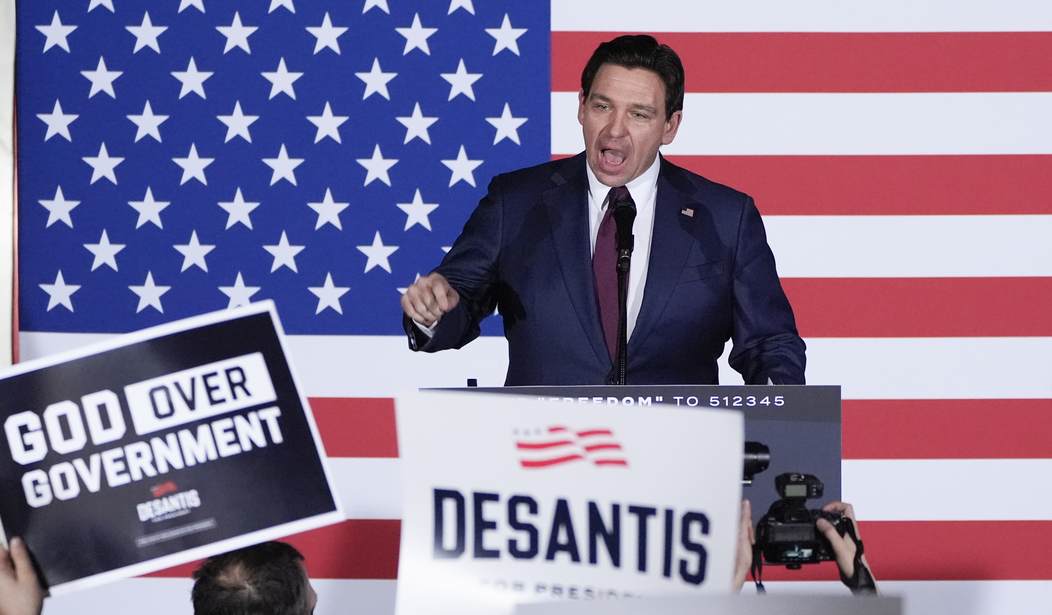In the dynamic world of U.S. presidential politics, the recent withdrawal of Governor Ron DeSantis from the race is igniting widespread speculation. Beyond the various explanations offered by pundits, a closer examination reveals how many so-called experts were incorrect about DeSantis (and their strategy to assist him) from the outset and remain wrong today. There is a combination of factors that likely influenced DeSantis' decision that few in the political class are talking about – perhaps because they were part of the problem.
Campaign financing, often considered table stakes for success, faces scrutiny in the context of modern campaign finance laws. The McCutcheon v. FEC decision, eliminating aggregate campaign finance limits, emphasizes the undeniable role of money in politics. However, DeSantis' exit underscores a fundamental truth—financial resources alone cannot secure victory. While Super PACs offer value, they lack the coordination capabilities inherent in candidate campaigns and political parties. Success demands a well-managed campaign that integrates strategic planning with financial backing. Trying to do one without the other will fail every time – and DeSantis is the most recent example.
DeSantis raised a lot of money. His Super PAC raised tens of millions more. Dozens of big time consultants earned a good living while advertising and other expensive tactics were employed. However, they all ignored the importance of building a widespread ground game and thinking ahead.
While I was a donor to an unaffiliated organization supporting DeSantis specifically focused on investing in building grassroots support, it wasn’t enough to compete with the party elite and their political consultants.
Now, many of these pundits are saying that DeSantis was an overrated candidate. However, contrary to these silly claims of DeSantis' overinflated political stock, a nuanced reality emerges. Many Trump supporters are expressing a willingness to back DeSantis in the future, possibly as early as 2028. The paradox of asserting openness to future support while labeling DeSantis as overrated raises questions about the delicate balance candidates must strike. Donald Trump even admitted to voting for him for governor of Florida while still calling him “DeSanctimonious”. DeSantis was hardly overrated. He is a great governor and was a great candidate – he just allowed himself to be misled by consultants and other grifters.
Recommended
While early states and retail politicking play a major role in the electoral process, attributing DeSantis' dropout solely to polling in these initial contests oversimplifies the candidate and his team’s decision-making. DeSantis suspended his campaign not due to a lack of appeal in early states but rather because of a strategic evaluation that victory in the Super Tuesday states seemed unattainable. He saw no credible path to victory.
The absence of a substantial campaign presence in key states like New Hampshire, South Carolina, and Nevada played a pivotal role in DeSantis’ decision. Historical precedents remind us that winning Iowa does not guarantee overall success, (Trump came in 2nd behind Ted Cruz in 2016 with only 24% of the vote). DeSantis (and his advisors) should have recognized the imperative of adopting a broader approach. He needed a ground game beyond Iowa and support from more than television commercial producers.
Trump's dominance in Iowa is attributed to his highly effective ground game—a crucial component for success. While underscoring the importance of well-managed campaigns, the key lies in communicating these strategies directly to voters, especially in swing states. Trump has demonstrated this capability in Iowa, and New Hampshire, and will surely do the same in South Carolina. However, questions remain about his ability to replicate it in pivotal states like Wisconsin, Pennsylvania, Georgia, Michigan, and Nevada during a general election.
DeSantis' decision to step back from the presidential race involved a mix of careful choices, how the campaign was managed, and the changing nature of politics today.
As we watch the 2024 election unfold, it's crucial for both candidates and voters to understand the various factors that influenced DeSantis' decision. This situation teaches us important lessons about the challenges of pursuing political goals in the complex world of American politics. It shows that successful campaigns need a thoughtful combination of money, planning, and an understanding of what resonates with voters in different states. His advisors should think ahead in their next campaign – and look for the next opportunity instead of the next paycheck.
Shaun McCutcheon is a Free Speech advocate, an Alabama-based electrical engineer, the founder of Multipolar, and was the successful plaintiff in the 2014 Supreme Court case McCutcheon v. FEC.

























Join the conversation as a VIP Member